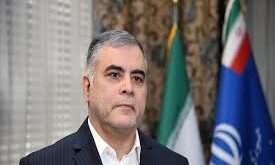India and Iran have agreed to continue talks over the multi-billion dollar Farzad-B gas field contract that is going on since 2009 even as both sides agree to expand the Chabahar Port project by building a railway network and free trade zone around it as the Iranian President Hassan Rouhani concluded his India visit.
On connectivity both sides agreed to expand the Chabahar Port project post the inauguration of Phase-1 in December last year. India has already committed Iran that it will invest in Iran in sectors such as fertilizers. petrochemicals and metallurgy in Chabahar free trade zone (FTZ).
In this context. both sides signed the lease contract for ShahidBeheshti port of Chabahar during interim period between port and Maritime Organization (PMO). Iran and India Ports Global Limited (IPGL).
“With a view to fully utilise the potential of the Chabahar Port and its connectivity to Afghanistan and Central Asia. India conveyed its readiness to support the development of Chabahar-Zahedan Rail line. IRCON. India and CDTIC. Iran who are engaged in discussions. were tasked to finalise the technical parameters and financing options for the project in a time bound manner.“ said the joint statement that was issued post the meeting between Modi and Rouhani here.
Burying the hatchet over facilitating Indian investments in the Farzad-B gas field. both leaders agreed to continue the talks.
“Noting the complimentarity of interests and natural partnership in the energy sector. it was agreed to move beyond traditional buyer-seller relationship and develop it into a long term strategic partnership. both sides agreed to continue and increase the pace of negotiation for reaching appropriate results on energy cooperation. including Farzad B gas field.“ the joint statement noted.
Both leaders urged both their oil ministries to conclude the talks on Farzad-B in a timebound manner. officials said.
Both sides on Saturday also signed the much-awaited Agreement for the Avoidance of Double Taxation and the Prevention of Fiscal Evasion with respect to taxes on Income. India and Iran also agreed to launch negotiations for a preferential trade agreement and bilateral investment treaty (BIT) within a stipulated timeframe.
In an effort to maneuver around the western sanctions. Iran allowed India to invest in Indian Rupees. Both sides are also planning to open banking branches in each other’s countries.
India’s Veto Power at UNSC
Iranian President Hassan Rouhani. who was on a four-day visit to India. also batted for India’s right to veto at the UN Security Council while he questioned US’ right to enjoy veto rights.
“At the time of formation of the UN. only countries that had a nuclear bomb has the right to veto. If it was based on fairness. it would not have been so … “Why India with a population of 1 billion &. 300 million doesn`t enjoy veto rights &. why does the US have veto rights? Five countries who had atomic bombs were given the right of veto.“ Rouhani said later at an event organised by the ORF.
Both sides also agreed to enhance cooperation in curbing terrorism. They agreed that peace and stability are the main objectives of both countries.
 Iran Energy News Oil, Gas, Petrochemical and Energy Field Specialized Channel
Iran Energy News Oil, Gas, Petrochemical and Energy Field Specialized Channel




